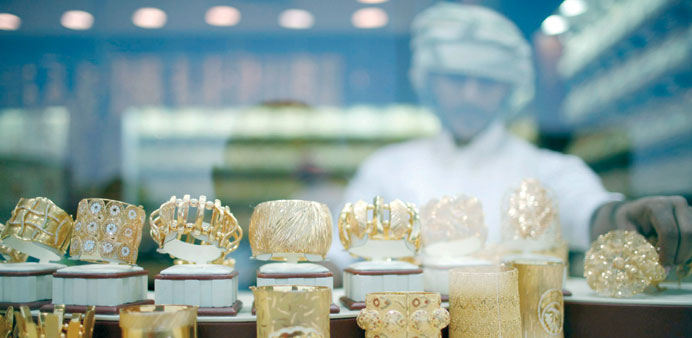Dubai needs to adjust its economic policies in order to reduce a “perilous” dependence on trade with India and Iran, according to a report by the government-backed Dubai Economic Council.
In an assessment of the emirate’s trade policies published on Monday, the DEC said other regional centers such as Qatar, Abu Dhabi and Bahrain could grab a share of Dubai’s lucrative export and re-export trade unless the emirate diversifies its trading partners and reduces its dependence on trading in gold and jewellery.
“Dubai’s concentrated trade activities with India and Iran are perilous,” the report said. “In the event of changes in trade regulations, regime or preferences in these countries, it has the potential of undermining the future sustainability of Dubai as a regional trading hub.”
Dubai has since the 1990s positioned itself as one of the Middle East’s largest trading hubs, with total non-oil trade rising 13% in 2012 to 1.235tn dirhams ($336.25bn). Yet 70%, nearly two-thirds, of its trade is done with India and Iran, and the bulk of its trade by value is in gold and jewellery, making Dubai vulnerable to tightening global sanctions on Iran and any changes in India’s policies on gold imports, the report said.
Aside from diversifying its trade partners, Dubai must prioritise exports of manufactured goods and machinery, which currently make up a “negligible” amount of its total trade, the DEC said. It also suggested that Dubai should follow the lead of Hong Kong and Singapore in their transition from low-tech exporters to exporters of technology-rich products such as electronics, biotechnology, pharmaceuticals and precision engineering.
The DEC is the economic consultancy arm of the Dubai government.
The report noted that Abu Dhabi, Qatar and Bahrain are taking steps to improve their ports and trading infrastructure, and could easily grab a greater share of Dubai’s re-export trade unless the emirate adjusts its policies.
“Evidently, Dubai ports and airports have the advantage of being already in place and competitive for international standards. However, if not supported by adequate trade policies, such advantage may erode,” the DEC warned.

